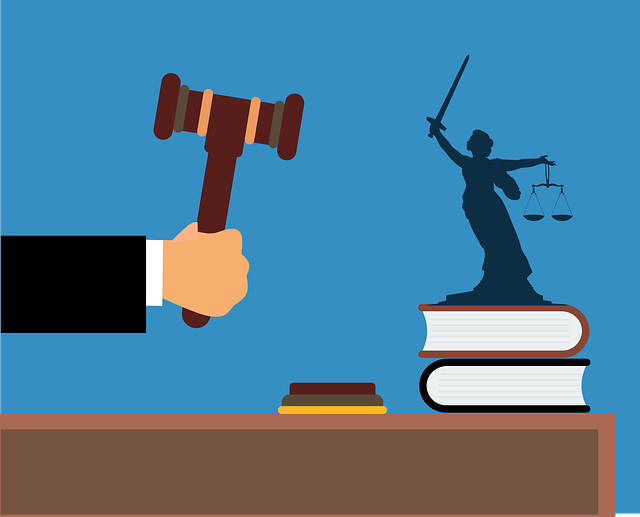Houston criminal lawyers are vital for navigating complex legal cases, ensuring client rights and fair outcomes. They educate clients about constitutional guarantees and procedural aspects, empowering them to make informed decisions. With deep knowledge of state and federal laws, these specialists strategise defence, negotiate pleas, or advocate for acquittal. By building strong relationships through open communication, they gain crucial case details for tailored advice. Upholding ethical standards, they fight for equal justice, securing just outcomes and protecting client rights throughout the process.
In Houston, a Houston criminal lawyer plays a pivotal role in protecting clients’ rights and securing fair outcomes. This article delves into the essential aspects of legal representation, beginning with understanding client rights as the foundation for any successful case. We explore complex criminal law strategies, highlighting the key role lawyers play in the justice system. Furthermore, it emphasizes building trust through effective communication and discusses ethical considerations crucial to upholding integrity in legal practice.
- Understanding Client Rights: The Cornerstone of Legal Representation
- Navigating Complex Criminal Law: Strategies for a Houston Criminal Lawyer
- Advocating for Fair Outcomes: Key Role in the Justice System
- Building Trust and Communication: Strengthening the Attorney-Client Relationship
- Ethical Considerations: Upholding Integrity in Legal Practice
Understanding Client Rights: The Cornerstone of Legal Representation

Understanding client rights forms the very cornerstone of effective legal representation, especially for a Houston criminal lawyer. It’s a fundamental responsibility to ensure that every individual who enters their law office fully comprehends their entitlements and protections under the law. This knowledge empowers clients to make informed decisions about their cases, enabling them to navigate the complex criminal justice system with confidence.
For a Houston criminal lawyer, educating clients on their rights begins by clarifying their constitutional guarantees, such as the right to remain silent and the right to an attorney. It extends to explaining procedural aspects of the legal process, ensuring they understand charges, potential outcomes, and available defenses. By fostering a deep understanding of these rights, lawyers can advocate fiercely for their clients, ensuring fair treatment and just outcomes in even the most challenging cases.
Navigating Complex Criminal Law: Strategies for a Houston Criminal Lawyer

Navigating complex criminal law cases is a specialised skill set required by Houston criminal lawyers. With intricate legal procedures and potential life-altering consequences, these attorneys must possess an in-depth understanding of state and federal laws. They strategise to ensure clients’ rights are protected at every stage, from initial investigations to post-conviction appeals.
Houston criminal lawyers often face challenging situations, including complex evidence, witness testimonies, and legal precedents. Their expertise involves constructing robust defences, negotiating plea bargains, or advocating for acquittal in court. They must be adept at interpreting complex laws, presenting compelling arguments, and fighting for fair outcomes tailored to each client’s unique circumstances.
Advocating for Fair Outcomes: Key Role in the Justice System

In the intricate landscape of the justice system, advocating for fair outcomes is a pivotal role played by an adept Houston criminal lawyer. Their primary objective is to ensure that every client’s rights are upheld and protected throughout legal proceedings. These lawyers act as champions, fighting tirelessly to secure just and equitable results for those facing criminal charges.
By leveraging their extensive knowledge of the law and legal procedures, Houston criminal lawyers navigate the complex web of justice. They vigorously defend their clients’ interests, challenging any potential violations of their rights. Their advocacy ensures that evidence is thoroughly examined, witness testimonies are rigorously cross-examined, and procedural errors are brought to light. This meticulous approach fosters a level playing field, enabling fair trials and just outcomes for all involved.
Building Trust and Communication: Strengthening the Attorney-Client Relationship

Building a strong attorney-client relationship is paramount for any legal professional, especially in high-stakes cases like those handled by a Houston criminal lawyer. Effective communication fosters trust, ensuring clients feel heard and understood. This connection is vital for several reasons; it encourages clients to share detailed information about their case, enabling attorneys to provide tailored advice and strategic guidance.
Open dialogue allows lawyers to clarify legal complexities in terms their clients can comprehend. This transparency builds confidence and empowers individuals to actively participate in their defense. When clients trust their Houston criminal lawyer, they are more likely to follow instructions, cooperate with investigations, and make informed decisions throughout the legal process.
Ethical Considerations: Upholding Integrity in Legal Practice

As a Houston criminal lawyer, upholding ethical standards is paramount. This involves ensuring transparency in all legal procedures, maintaining client confidentiality, and avoiding conflicts of interest. By adhering to the highest moral principles, lawyers can build trust with their clients and defend them effectively within the bounds of the law.
Ethical considerations also demand that Houston criminal lawyers advocate for fair treatment and equal justice for all individuals, regardless of background or circumstances. This means fighting against bias, prejudice, and systemic injustices in the legal system. Through diligent representation, lawyers play a crucial role in securing just outcomes and protecting the rights of their clients.
A Houston criminal lawyer plays a pivotal role in ensuring client rights and advocating for fair outcomes within the complex landscape of criminal law. By upholding ethical standards, building strong attorney-client relationships, and employing strategic navigation through intricate legal matters, these professionals safeguard justice and provide indispensable support to their clients.
